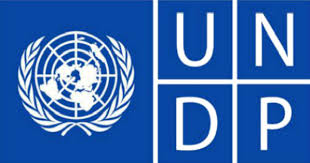Banking regulators’ need synergy of policy rollout to end conflicting regulations—Ambah
One of the key frustrating factors in the regulation of Nigeria’s banking and financial sub sector of the Nigerian economy has been conflict of policy regulations over the years and the problem has been the cause of instability and associated collapse of banks. This was the submission of the Chief Executive Officer of FSDH Merchant Bank, Mrs. Hamda Ambah.
Making presentation at the FITC Thought Leadership Discussion Series in Lagos, she averred that time has come for banking regulators to come together and agree on similar policies to avoid conflicting regulations.
She argued that “regulations should be applied to all institutions without exemption”, adding that “the crises in the industry were as a result of gaps in laws and regulations”.
“The greatest problem banks and banking institutions have is corporate governance, and lack of good corporate governance always leads to bank failure.
According to her, “The issues associated with corporate governance were issuing credit without following appropriate process, and the upturning of entrenched processes by managing directors, among others”.
Ambah stressed “the looming bank failure could be averted if all stakeholders in the banking industry could play their roles effectively in strong synergy”.
Earlier the Managing Director of Nigeria Deposit Insurance Corporation (NDIC), Alhaji Umaru Ibrahim, hinted that there are strong chances of another bank failure in the country if the prevailing weak corporate governance culture and weak internal control are allowed to continue.
Represented by the corporation’s Executive Director, Operations, Aghatise Erediauwa, NDIC boss gave an insight that “Banks usually have a cycle of between seven to 10 years. If we have not had bank failure in 15 years, then they are bound to happen soon. Presently, we are worried that the cycle is almost complete.
“This is all due to the issue of weak corporate governance culture in the banking system and weak internal control. If this is the situation, how would this drive financial system to achieve economic growth? This is our fear as regulators.”
Just as he stressed that there was a lot to be done by the regulators to avert such occurrences, the Chief Executive Officer, Sterling Bank Plc, Mr. Abubakar Suleiman, noted that there were other issues confronting the banking industry other than corporate governance.
To him, issues concerning lack of sovereign governance and transparency in regulations need to be taken very seriously by relevant regulatory agencies even though corporate governance in banks were better than what they used to be.
He made it clear that the main responsibility of regulatory agencies is for them to adopt tools and laws that will help strengthen the banking system and facilitate sustained economic growth.
However, the President of Bank Customers Association of Nigeria (BCAN), Dr. Uju Ogubunka, identified the interest of customers as a missing gap that was not being addressed in the industry, saying “There are three key parties to banking activities, namely, regulators, operators and customers”.
According to him, “Meetings were regularly organised between the operators and the regulators, but the customers were never taken into consideration even though they are the major stakeholders in the business of banking”.









